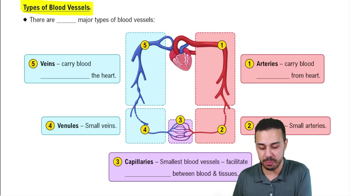Here are the essential concepts you must grasp in order to answer the question correctly.
Lymphocytes
Lymphocytes are a type of white blood cell that play a crucial role in the immune system. They are primarily responsible for the adaptive immune response, which includes the production of antibodies. B lymphocytes, a subtype of lymphocytes, can differentiate into plasma cells that secrete antibodies to neutralize pathogens.
Recommended video:
Antibody Production
Antibody production is a key function of the immune system, where specific proteins are generated to identify and neutralize foreign objects like bacteria and viruses. When B lymphocytes encounter an antigen, they can transform into plasma cells that produce large quantities of antibodies, which are essential for targeting and eliminating pathogens.
Recommended video:
Types of Blood Cells
Blood cells are categorized into three main types: red blood cells, white blood cells, and platelets. White blood cells, or leukocytes, include lymphocytes, neutrophils, basophils, and others, each serving distinct roles in immune response. Understanding these types is essential for identifying which cells are involved in specific immune functions, such as antibody secretion.
Recommended video:
 Verified step by step guidance
Verified step by step guidance


